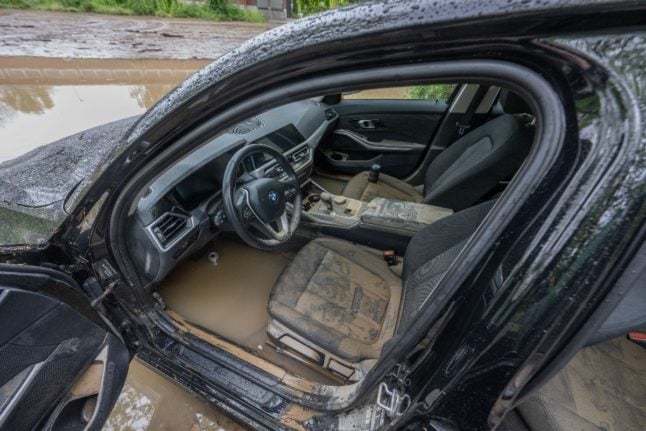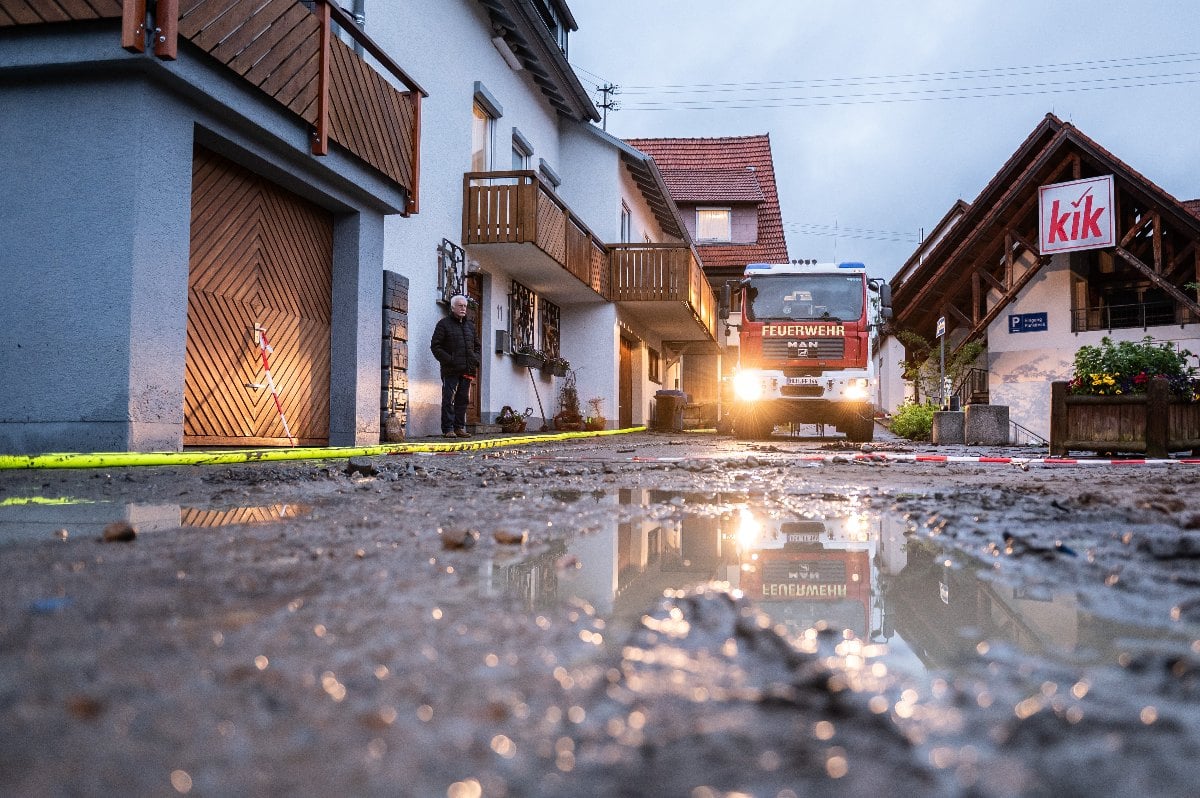Rotenburg (Wümme) in Lower Saxony recorded a record low July temperature of 2.9C on early Thursday morning, according to Wetter.com, breaking a station record which had stood since 1946.
The record low came only four days after Germany logged a record high June temperature of of 39.6C in Bernburg an der Saale in Saxony-Anhalt on Sunday.
SEE ALSO: Storms forecast in Germany after record breaking heat wave
The dramatic dip can be attributed to cold polar air flowing to the south of the country, and staying stagnant in the centre.
Other central and eastern parts of Germany also logged chilly temperatures on early Thursday morning: Quickborn in northern Schleswig-Holstein saw its coldest recorded July temperature in 20 years at 4C. Göttingen also logged its lowest July temperature since 1996 (4C), and Friesoythe in Lower Saxony broke a low record set in 1971, also with 4C.
The village of Deutschneudorf in Saxony even had ground frost forming on Thursday morning. Such frost has only been recorded seven times throughout Germany during the month of July.
The cooler temperatures are slated to remain in Germany in the coming days. With low air pressure over northern Europe, the Bundesrepublik will be feeling cooler with denser clouds, sometimes gusty wind and a little rain, according to the German Weather Service (DWD). On Saturday, however, there will be particularly warm and sunny weather in the south.
Wetter am Wochenende: Am Samstag im Süden noch einmal heiß, am Sonntag deutlich kühler. Dazu gebietsweise Regen, im Süden teils kräftige Gewitter. /V pic.twitter.com/OUnhon0f8i
— DWD (@DWD_presse) July 5, 2019
Cooler Friday
Friday temperatures are slated to be pleasant and mild in central and south Germany, bringing in a mix of sun and clouds. The Mercury will rise between 24 to 30C, and the air will be dry.
But the north and east of Germany will be cloudy and even a little rainy, with the Mercury predicted to stay between 18 and 22C. Sweater weather will come to the coasts, with temperatures of 17C and a fresh breeze.
Der Himmel über #Deutschland heute um 8.00 Uhr: #Hohenpeißenberg, #Frankfurt am Main, #Hamburg. Fotos: DWD-Webcams /kis pic.twitter.com/aRnEaFhhTl
— DWD (@DWD_presse) July 5, 2019
Sunny and stormy Saturday
On Saturday temperatures of up to 31C will be felt around southern Germany. The air around the Alps will become more humid, causing strong thunderstorms to form in the afternoon. The rest of the country, however, should remain pleasant, with northern Flensberg set to stay at 18C and the rest of Germany hovering around a pleasant 25C.
Sunday and the coming week
Sunday will cool down a bit, with temperatures between 16 to 20C in most of the Bundesrepublik. The south, however, is expected to reach between 20 to 25C.
Rain showers and thunder will hit southern Germany in the morning, with a sunny afternoon in sight.
In the coming week, temperatures are expected to steadily increase, reported DWD. After a low point in the temperature on Monday (16 to 24C), the Mercury across Germany will steadily rise, but stay cool in the north and pleasantly warm in the south.
A renewed heat wave is as unlikely after the long cool and rainy phase, said DWD, as it softens the dryness in the air.




 Please whitelist us to continue reading.
Please whitelist us to continue reading.
Member comments